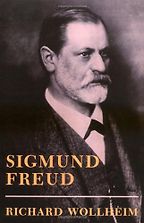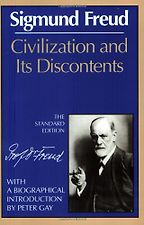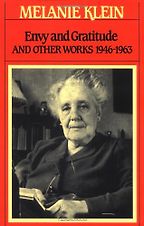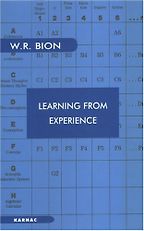Let’s start with Richard Wollheim’s Sigmund Freud.
The Wollheim book on Freud was written as part of a series on Modern Masters and, unusually, they chose a philosopher to do Freud. This was remarkable, particularly in the British context, because Britain was not feeling particularly hospitable to Freud at that time, the early 1970s. It’s a short book and I always recommend it as an introduction to Freud because Wollheim brings an extremely philosophical mind to the subject and a mind that deeply understands psychoanalysis. He maps out the logical geography of Freud’s thought, including the early period leading up to the publication of The Interpretation of Dreams and the Studies on Hysteria, and he takes us through the model of the mind and into the broader reaches of Freud’s thought.
Can you outline some of that thought?
The place to start would be to say that Freud was always very keen to point out that he didn’t discover the unconscious. The unconscious was already well-known, particularly in literature, and Freud often quotes Goethe and Shakespeare. The unconscious was also well-known in antiquity as an aspect of the mind that is unknown to us but that affects the way we think, feel and behave.
There is a wonderful line in Henry IV part II when Prince Harry says to the King that he thought he was dead and the King says: ‘Thy wish was father, Harry, to that thought.’
Shakespeare is saying that Harry has a wish he is not aware of that his father be dead. It is also a more fundamental wish of any son that the father be dead so that he can take his place, and there is also a subtler suggestion that people can believe things to be the case simply because they wish them so.
The fact that things we are not aware of can affect the way we behave was known before Freud but what Freud did was to discover the unconscious for science with a small ‘s’. He captures the unconscious within an explanatory model that has a theoretical structure. So, the model of the mind shows that not only are parts of the mind unconscious but there are parts of the mind that are held in the unconscious. This is called the dynamic unconscious.
Taine, the 19th-century French historian, said that the mind was like a theatre in which many performances are going on at the same time but there is only one which is visible to us. The rest are invisible. Freud shows us that these performances are held in invisibility such that they are not just descriptively unconscious, but they cannot be made conscious by an effort of will – they are actively repressed. There is a psychological pressure holding back some of the unconscious, that which is too disturbing, which expresses, for Freud, primitive and archaic, mainly sexual impulses, and he later added destructive, aggressive impulses.
What would you say to people who might argue that this can’t be proved.
I think you would have to do quite a lot of work not to see it. Freud is fond of saying that he is only telling us what anybody with eyes to see can see in any nursery. We don’t have such a problem nowadays with children having sexual impulses but when Freud first pointed it out it seemed absolutely ridiculous. He is not inventing new ideas but showing ideas that are there but that we can’t see because we have repressed them. As Sophocles’s Jocasta says in Oedipus Rex: ‘How oft it chances that in dreams a man has wed his mother!’ One could, of course, add, ‘and killed his father’.
We all know that there are simple ways to see the unconscious in action. Freud’s essay on ‘The Psychology of Everyday Life’ points out the slips, mistakes and forgettings that are the product of what he shows are unconscious motivations. We have always known that if a husband tells his wife that he simply forgot their wedding anniversary she can rightly assume that the forgetting has an unconscious motivation. It might be a hostile attack on the marriage itself or it might be that the husband values and needs the marriage so much that he is unable to cope with the extent of his dependence. Of course, it is always easier to observe these things in others than in oneself, but we assume the unconscious as a way of understanding what we are. When someone says ‘judge him by his deeds not his words’ we are acknowledging that our actions will clearly reveal what we are like, whether we like it or not. Freud discovers that unconscious motivation, and radically expands it in terms of the extent to which we are ruled by forces beyond our control.
There is a tendency to think of psychoanalysis as what goes on between a patient and an analyst, but when I’m teaching I like to emphasise that psychoanalysis is also a body of knowledge of the mind and of culture.
Can you give an example of the cultural aspect?
There are so many things in everyday life that we don’t question or interrogate enough. We know they are bizarre and we know they are there but we don’t understand their nature. Like racism. For example, the belief that black men have large sex organs and are out to possess the white female body. Where on earth could such an idea come from? Certainly not experience. This is a projection on to the black man of the white man’s own fantasy and desires and, because he cannot own these desires in himself, he projects them and the black man becomes a vehicle for the white man’s own lack of tolerance for his desires. I would like to sound a cautionary note here and say that anything I say about racism acknowledges that these things take place embedded in a social and historical framework which I am not discarding. I am simply adding the subjective dimension that gives the hatred its force.
Another good example is asylum seekers. If you read the language of the British tabloids you get a picture of people who have the characteristics of disgusting insects, invading our culture in a plague, all selfish, greedy, on the take and none of them, apparently, has suffered. The psychoanalytic dimension here is the projection – we project into others aspects of ourselves that we disown, aspect of ourselves that we don’t like feed the attitude we take to others.
Jews are another example – the greedy capitalists. It is the other who is filled with greed and envy. Jews are a particularly adequate vehicle for nation states because nation states are threatened by capital. Capital doesn’t obey boundaries and has its own logic. So the nation state under threat becomes of supreme value and the enemy is the Jew so that blood, soil and nationhood are set against the march of capital of which Jews become the vehicle to persecute and blame.
Gays and lesbians too have been the object of such terrible contempt and abuse. It is often thought that psychoanalysis is hostile to gays and lesbians and there is an assumption that psychoanalysis sees these preferences as an illness. It is not without basis because there have been analysts, unfortunately, who have believed that and it shows how difficult it is to separate analysis from its social context. But, for Freud, we are all constitutionally bi-sexual. There is a balance in all of us. Traditionally the male represses it and sublimates it, only allowing it expression in particular locations where it isn’t manifest, for example, the gentleman’s club is an arena of repressed homosexuality, as is ordinary friendship. Freud explained that all affection has a sexual element. The damage is not in the preference but in its repression. Freud wrote a long and thoughtful letter to a woman whose son was homosexual and who wrote to him asking for help for her son. Firstly he tried to reassure her, saying that many great writers and thinkers were homosexual and shouldn’t be judged, but that if her son was neurotically homosexual then his sexual orientation might be altered by psychoanalysis and, if not, then he could be helped to become more comfortable in his sexuality.
What is neurotic homosexuality?
If a man has turned away from a woman out of fear, for example, and obviously this is a huge over-simplification, but if he has had a terrible relationship with a violent and humiliating, persecuting mother it may be that his basic orientation is towards women but he is unable to express it. So, psychoanalysis might help him to express his sexual preference for women, but, if his basic orientation is towards men it will help him to accept this and feel more comfortable with it. Of course, this is a bit idealistic because if you take neurosis as an umbrella term for psychological suffering and you are in a society that hates homosexuality then you are going to suffer terribly either way.
Moving on to Freud’s Civilization and Its Discontents.
Interestingly, this was chosen by Penguin in its Great Ideas series that included Seneca and Hazlitt. In 2004 it was reviewed in The Guardian by Nicholas Lezard in an excellent short review that showed how bowled over he was by reading it. It is about Freud’s theory of our relation to culture and was written in 1930 in his later period. In German it’s called Das Umbehagen in der Kultur and they had a lot of trouble translating ‘Umbehagen’. Perhaps ‘The Malaise of Culture’ might be a more accurate translation, although Kultur has a slightly different meaning to culture so ‘civilisation’ is probably more accurate.
It is relatively easy to read as a stand-alone text and it addresses what we mean by civilisation and what the cost to us is of being civilised. It is partly Freud’s attitude that makes him so remarkable – his capacity for detached observation. I don’t mean cold and indifferent but it is a psychological achievement to take in as much as he can in as unbiased a way as possible. He takes a long look at civilisation, embracing within that the cost to the individual, a cost we continue to pay. He writes: ‘We have taken care not to concur with the prejudice that civilisation is synonymous with a trend towards perfection.’ This laconic style is typical of the way Freud writes. He means that in order to be civilised we have to repress certain sexual and destructive desires and the very powerful forms of rivalry that are inherent in all of us – for the group to function together. Inevitably the cost to the individual is expressed in neurosis.
Freud had a tremendous respect for neurosis. He did not see it as something to be got rid of, he was not contemptuous of it, but he sees it as an expression of what we are like. The word has been somewhat debased but neurosis can be a very severe form of suffering.
Women tend to be more repressed than men in society and many of Freud’s patients were women. Is it fair to say that women are therefore more likely to be neurotic than men?
There are not many things in psychoanalysis that people agree Freud was wrong about, but his attitude to femininity is one of those things. It is not enough to say that Freud was a man of his time because he wasn’t. His view of femininity is completely derived from his view of masculinity, which culminated perhaps in his idea of penis envy, of the woman as a castrated man. This is not baseless in the sense that we all desire what we cannot have, but a woman who saw herself as a castrated man would now be considered to be suffering from a neurosis. Freud did write that we would need women analysts to investigate femininity, but there is no getting away from the fact that he was powerfully wrong here. On the other hand, Freud had women patients who were extremely ill. These were not the walking well of Hampstead but very disturbed people. In his attitude to them Freud allowed them to express aspects of themselves that the culture did not allow them to express, including sexual wishes and desires. Their torment was derived from repressed desires and the way forward was to give them a form of expression, so to that extent he was a great liberator of women.
Freud believes that neurotics speak loudly of the things that society asks us to repress. This partly explains our dislike of mental illness in that it reveals aspects of ourselves. So, civilisation demands that we repress our desires and Freud points out that this repression will unleash dangerous forces.
Like what?
It is our natural tendency to form groups like, for example, religious groups. Freud writes about the civilising influence of Christianity but points out that after St Paul made the pledge of love for humankind and demanded that we love each other as brothers this had the effect of creating extreme intolerance of groups outside Christianity. If all you can feel for your brother is love, and not hatred and rivalry as well, then the cost of joining the group is repressing your violence which will then be directed at others outside the group. So you’ve got the Inquisition.
Bleak.
It is bleak but the cost of our ignorance of this is huge. If we are aware of the darker side to our natures we can create social structures that allow for it. But, if not, then it is easy to fan flames of hatred because they are flames we all already have. We are appalled that young Muslims are attacked on the street but we have helped to create a culture in which that is inevitable. Freud refuses simply to praise the achievements of culture. He relates cultural ritual, like religious ritual, to the symptoms of obsessive neurosis.
The content of religious ritual is similar to that of obsessive ritual, in that both separate the clean and the dirty, the sacred and the profane and the theme of guilt is central to both as is a belief that there are powers that must be placated by putting things in their place. For the obsessive these rituals are idiosyncratic to that individual but for religious people these are communal activities that symbolise being part of a group. Both deal with similar problems so Freud does not idealise civilisation. It puts a brake on man’s destructive forces but the repression of these forces causes untold damage. The belief in man’s perfectibility is very destructive because anything negative will be projected out.
Like with Nazism.
Yes. This was written in 1931 and he writes at the end: ‘The fateful question for the human species seems to me to be whether and to what extent their cultural development will succeed in mastering the disturbance of their communal life by the human instinct of aggression and self-destruction. It may be that in this respect precisely the present time deserves a special interest. Men have gained control over the forces of nature to such an extent that with their help they would have no difficulty in exterminating one another to the last man. They know this, and hence comes a large part of their current unrest, their unhappiness and their mood of anxiety. And now it is to be expected that the other of the two Heavenly Powers, eternal Eros, will make an effort to assert himself in the struggle with his equally immortal adversary. But who can foresee with what success and with what result?’
On that note let’s move on to Hannah Arendt’s The Banality of Evil.
She was not a psychoanalyst at all but she shared Freud’s basically tragic view of man divided against himself and of suffering that cannot be transcended. I find her writing totally consonant with a psychoanalytic understanding of the world. She reported on the Eichmann trial in Jerusalem for the New Yorker and she had her finger on the pulse of seeing Eichmann not as evil but as manifesting a particular aspect of culture. She was interrogating him in her mind and asking: What can you tell me about myself and my culture?
So he was not an evil monster for her but a caricature of a mode of existence that has become part of our culture. His motives were not derived from passion. He was a functionary, trying to get the job done well. Understanding what he was doing was not instrumental to his reasoning, the amount of gas needed, the disposal of a certain number of bodies. What Arendt says is that this kind of mass destruction could only happen in our age: the factories, the calm logic with which it was carried out. As the sociologist Zygmunt Bauman said, the peasant farmer is to the lynch mob what the factory is to the concentration camp. The concentration camp carries to an extreme the logic of industrialisation and Arendt resists the wish to project unwanted aspects of herself into Eichmann.
She saw the phenomenon of Nazism as developing out of colonialism, starting with the Boer War and the beginnings of racism as an ideology used to justify the imperial endeavour. She emphasises what she calls ‘thinking’ and it is close to what pychoanalysis means by thinking, that is, the capacity to reflect on oneself and the world without succumbing to the tendency to simplify. Racism creates a binary world, a binary way of thinking.
Five Books interviews are expensive to produce. If you're enjoying this interview, please support us by donating a small amount.
She thought the political arena should be the arena for engagement and thinking more deeply about ourselves and society but she saw instead the degradation of politics. Politics now is not about engagement, but about control, the wish to control the way we vote. It has become advertising. She was interested in citizens being involved in local politics, on the streets and she thought that the more an individual withdraws to look after his own garden the more a vacuum is created into which destructive forces can seep.
So, Melanie Klein’s Envy and Gratitude?
Melanie Klein is perhaps the most influential post-Freudian and, where Freud found the child in the adult and saw how all of us carry within us childhood thoughts, feelings and fantasies that have a determining effect on our lives, often unconsciously, Klein found the infant in the child. She developed a form of psychoanalysis that could access the internal life of quite young children.
She developed this through the play technique. So, where an adult is asked to free-associate, a child is invited to play with a box of toys or pens and paper. In the playing he expresses his own inner world. In the same way as it was shocking at the time that adults could express repressed desires, Klein’s way of talking to children also draws out sometimes very destructive impulses.
In 1920 Freud wrote Beyond the Pleasure Principle, which recognised the potency of man’s self-destructive impulses and Klein takes that very seriously. She has a basic dynamic: the wish to love, which she sees as reparative, and the wish to destroy. There are two views of man, I suppose: Rousseau’s view that we are born innocent but corrupted by experience, and the view that we are born with a wish to destroy already beating in our breast. The idea of original sin expresses something in us all. Klein sees us as delighting in destruction not just because of frustration. She describes this in very bodily ways, devouring, consuming, attacking. The writing has a very bodily feel to it and all our fantasies involve our bodies.
Envy and Gratitude is a mature work and more approachable than some of her others. Here Klein expresses the forms that envy and gratitude take. She develops the idea of a polarity between our relations to ‘the object’ (usually the mother). Gratitude is love and the capacity to take from the object and enjoy what we have taken, but, just as basic, is the disposition to envy. This is not ‘I wish I had that car’ but this is a hatred of the good. She quotes Chaucer as saying that all sins are sins against a particular virtue but that envy is the worst because it is a sin against virtue itself. ‘I hate that because it is good.’
Isn’t it just a feeling of worthlessness in the face of something wonderful that makes you hate it?
I think it’s exactly the opposite. You feel unworthy because of your hatred.
You see the object of desire and you hate it because it has what you want. Jealousy is less destructive because it acknowledges the worth of the object but someone else has it – it’s tripartite. But in envy you destroy the good object. It’s like a patient who meets someone that they could have a meaningful relationship with and then denigrates them and undermines them, says they are being manipulated and actually makes the good bad. It’s biting the hand that feeds us. Gratitude is not the only opposite of envy but the capacity to take pleasure in someone else’s achievement is the opposite of envy.
Learning from Experience. Wilfred Bion is another of the most influential post-Freudians.
He is very seminal to my work. There are three elements in Freud’s thought that deal with what promotes development. The first is overcoming repression of sexual and destructive instincts, the second is allowing the life instinct to dominate the death drive and the third is knowledge, that is, knowledge of the self. ‘Where Id was there Ego shall be,’ he said. Crudely speaking, the Id is the raging primitive passion and the Ego is the voice of reason and reality. Bion brings knowledge into the centre of psychoanalytic scrutiny. What forces, he asks, can interfere with knowledge? He doesn’t mean knowing things, he means the lifelong process of understanding, of coming to know things. He’s a genetic epistemologist – he deals with the development of knowledge.
Get the weekly Five Books newsletter
The Swiss psychologist Jean Piaget did wonderful work on cognitive development but he leaves emotion out entirely. For Bion emotion and knowledge are intimately connected. He links the emotional capacity to develop and know to the capacity to tolerate frustration. If we can hold ourselves in check whilst we endure frustration then we can come to know things. To some extent we are born with the capacity but we are fundamentally influenced by the world in which we develop, and he deals especially with the relationship between mother and baby.
The more the mother can help the baby, intuitively, to tolerate primitive frustrations, the more the baby can develop and internalise this capacity to manage himself. The psychotic patient, for example, has great difficulty in bearing frustration and his capacity for knowledge of the world is replaced by delusions. Freud talks about this in his essay on the principles of mental functioning, in which he talks about the pleasure principle and the reality principle. In order for the reality principle to function man must be able to manage what he describes as disappointment. Bion leans very heavily on Freud but he also brings in Klein and his own work with psychotic patients.
August 2, 2009. Updated: September 22, 2023
Five Books aims to keep its book recommendations and interviews up to date. If you are the interviewee and would like to update your choice of books (or even just what you say about them) please email us at [email protected]










